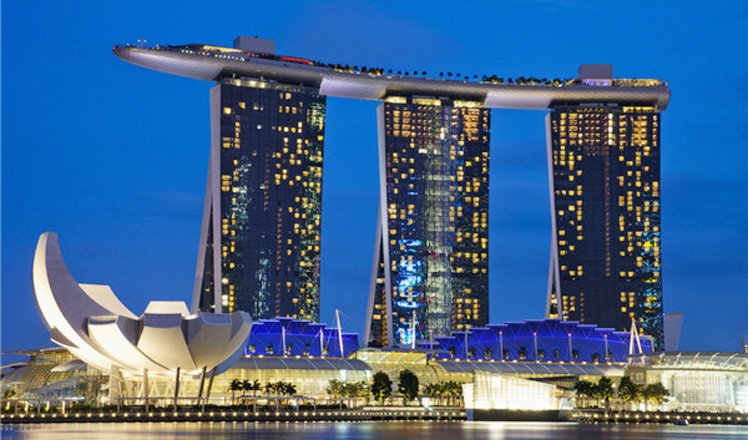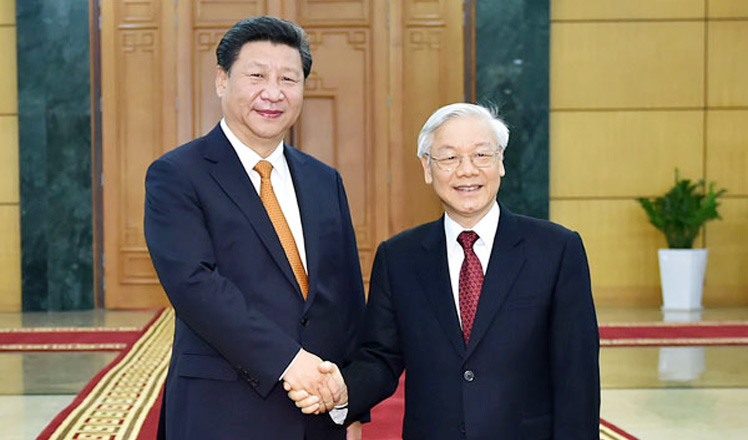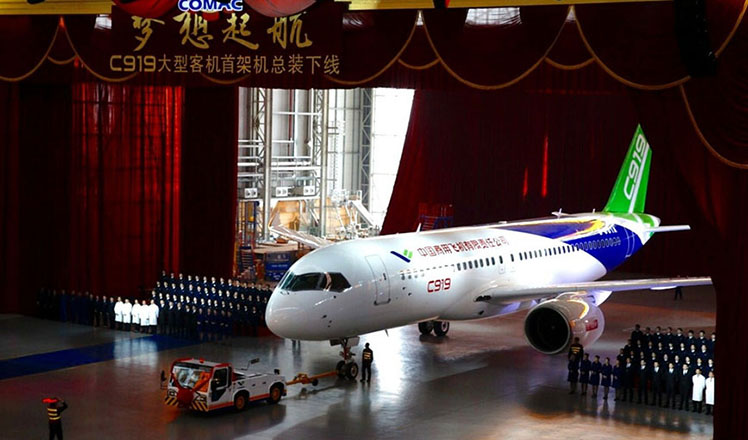Chinese electric vehicles get traction in Lat Am
Updated: 2015-11-09 05:51
By Mao Pengfei(China Daily Latin America)
|
|||||||||
In order to reduce pollution and save on costs, Colombia's capital of Bogota has decided to introduce Chinese hybrid and electric vehicles into its public transport system.
Two Chinese automotive giants, Higer and BYD, are currently testing specially designed bus models on the streets of Bogota as part of the city's Transmilenio transport system.
Higer, China's second-largest bus-maker, is banking on its hybrid bus to fit the bill in Colombia, helping the country put a lid on its high consumption of petroleum and fight the effects of climate change.
"Our hybrid bus is powered by new clean technology," said Alan Ma, Colombia country manager for Higer,on Friday. "We designed this model for Bogota to answer the needs of its Transmilenio system, as we understand its vision for the implementation of clean-energy technology."
According to Ma, studies show that if 30,000 diesel-powered buses could be replaced with hybrid and electric vehicles, Bogota could prevent 3.3 million tons of carbon dioxide from being emitted and 300 million gallons of petrol from being consumed within 10 years.
"This hybrid bus has two engines, a diesel engine which only works as an electric generator and does not make the bus move. The bus has another electric engine, which powers it. When the bus brakes, for example, it does so with the electric engine, so that when it restarts accelerating, it can save as much energy as possible," Ma said.
Another Chinese company, BYD, a leading producer of electric vehicles and solar panels, is also determined to join this project and help renovate the city's bus fleet with its fully electric model.
Bogota established the first electric taxi fleet in Latin America in 2013, composed of 45 BYD e6 cars, which have become emblematic of the city's low-carbon transportation plans.
Now BYD has brought eBus Andino 18s for testing in Bogota. According to the company, this large-capacity model is fully environmentally safe and cheaper than diesel-powered vehicles, allowing savings on fuel, spare parts and operating costs.
For the makers of such vehicles, markets such as Colombia are still emerging as the awareness for electric vehicles has not grown as it should to help answer rising pollution problems.
However, both large companies and local governments in Colombia are increasingly showing an interest in vehicles that can help reduce environmental pollution and save money, especially in public transport systems.
According to a declaration released at a sustainable cities summit of Latin American mayors held this April in Brazil, by the year 2020 some 50,000 buses will be replaced by clean energy vehicles, or a third of the buses in service in those Latin American cities that signed the document.
"We have been here since 2012 when BYD launched its Latin American strategy," said Lara Zhang, a BYD representative in Colombia. "Since then, the Colombian market has been very important, but we also cover markets like Peru, Panama and Ecuador. Brazil is also a major market; we have set up an assembly plant in the town of Campinas, which also covers Argentina and Uruguay. Our strategy is to devote more resources to Latin American markets."
Chinese electric vehicles have been gaining in popularity in Latin America in recent years. At the 33rd Havana International Fair which ended Saturday, BYD's electric car was awarded a Gold Medal in recognition of its quality and state-of-the-art clean energy technology.
In Brazil, BYD is part of a consortium that won a public bid earlier this year for a car-sharing program in Rio de Janeiro, which initially foresees a fleet of 300 electric cars.
Several Brazilian cities have been testing BYD's electric buses. Campinas and Sao Paulo both are purchasing BYD electric buses; other cities like Rio are in negotiations with the company for bus fleets.
"We expect to be able to provide a large fleet by early 2016, in time for the Olympic Games," said Adalberto Maluf, director of marketing and governmental affairs for BYD in Brazil.
Bogota's newly reelected mayor, Enrique Penalosa, has been a long-time advocate for a sustainable public transport system.
"An advanced city is not one where even the poor use cars, but rather one where even the rich use public transport," Penalosa was quoted as saying in a 2013 talk.
To Penalosa, a good public transport system is not only good for the health of the city, it’s also a symbol of a good democracy.
BYD's test model for Bogota's public bus fleet can drive up to 400 kilometers on a full charge, a significant advantage over diesel-powered vehicles, which can go only 280 kilometers on a full tank, the company said.
Higer’s hybrid bus and BYD's electric model will be on display at the FITRANS Cargo and Passenger Transport Fair in Bogota from Nov 18 to 21.
- Thwarted homecoming of soldiers' remains triggers emotional breakdown
- China's first innovative drug approved NDA in the US
- China lists, names five for judicial intervention
- Scientists decode panda language
- Beijing embraces first snow of the season
- New policy expected to bring spike in births, and then fewer

 History of Coca-Cola on display in Shanghai
History of Coca-Cola on display in Shanghai
 Beijing embraces first snow of the season
Beijing embraces first snow of the season
 10 reasons why Chinese tourists like Singapore
10 reasons why Chinese tourists like Singapore
 Negotiation is 'right approach'
Negotiation is 'right approach'
 Top 10 Asian economies with highest English proficiency
Top 10 Asian economies with highest English proficiency
 PLA Navy fleet pays visit to Florida
PLA Navy fleet pays visit to Florida
 Top Gun: Breathtaking moments of China Air Force
Top Gun: Breathtaking moments of China Air Force
 Peace Ark docks at San Diego
Peace Ark docks at San Diego
Most Viewed
Editor's Picks

|

|

|

|

|

|
Today's Top News
China, not Canada, is top US trade partner
Tu first Chinese to win Nobel Prize in Medicine
Huntsman says Sino-US relationship needs common goals
Xi pledges $2 billion to help developing countries
Young people from US look forward to Xi's state visit: Survey
US to accept more refugees than planned
Li calls on State-owned firms to tap more global markets
Apple's iOS App Store suffers first major attack
US Weekly

|

|








